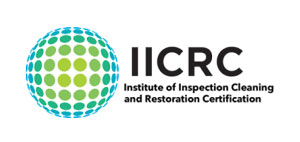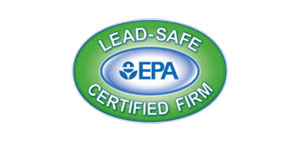When a fire occurs, it can cause significant damage to your property and pose risks to your health and the environment. Understanding the impacts of fire damage is crucial for taking the necessary steps to ensure safety and effective restoration.
In this section, we will explore the various impacts of fire damage on property, health, and the environment. We’ll examine how fires can lead to structural damage, destruction of personal belongings, and other property-related issues. Additionally, this section will discuss the potential health hazards associated with fire damage, such as smoke inhalation, carbon monoxide poisoning, and other related concerns. Furthermore, we’ll delve into the environmental consequences of fires, including air pollution, water contamination, and the negative effects on ecosystems.
Key Takeaways
- Fire damage can cause extensive damage to property, including structures and personal belongings.
- Smoke inhalation and carbon monoxide poisoning are health risks associated with fire damage.
- Fires can have significant environmental impacts, such as air pollution and water contamination.
- It is crucial to prioritize safety and initiate the restoration process after a fire.
- Proper insurance coverage, legal considerations, and fire prevention measures are also crucial aspects of managing fire damage.
Property Damage Caused by Fires
Fires can cause significant damage to both structures and personal belongings. The severity of the damage is often dependent on factors such as the type of fire, the intensity of the heat, and the duration of the blaze.
Structural Damage: During a fire, the heat and flames can weaken and even collapse walls, ceilings, and floors. The excessive heat can also damage wiring, plumbing, and other critical structural elements. Even if the building is still standing, structural damage caused by fire can make it unsafe to enter.
Destruction of Personal Belongings: Aside from the structural damage, fires can also destroy or damage personal belongings and valuable items. Smoke, soot, and water damage can render items unusable or permanently damaged. In some cases, only a few items may survive.
Other Property-Related Issues: Fire damage can also lead to other property-related issues such as damage to roofing, landscaping, and the overall curb appeal of the property. Repairing and restoring property damage caused by fire can be a daunting and costly task.
Health Risks Associated with Fire Damage
Fire damage not only affects property but also poses significant health risks to individuals. When a fire occurs, it releases dangerous pollutants into the air that can result in smoke inhalation, which can lead to mild to severe respiratory issues.
The most common form of smoke inhalation is carbon monoxide poisoning, which occurs when the toxic fumes from burning materials are breathed in. Carbon monoxide can result in long-term health complications or even death. The symptoms of carbon monoxide poisoning, including headaches, nausea, dizziness, and shortness of breath, can emerge quickly and progress to lethal levels without warning. That’s why it’s important to be aware of the risks of carbon monoxide during and after a fire.
In addition to carbon monoxide, fire can release other toxic chemicals into the air, such as sulfur dioxide, hydrogen cyanide, and ammonia, which can cause serious health problems. Exposure to these chemicals can cause respiratory irritation, headaches, dizziness, vision issues, and skin problems. Breathing in these chemicals can also damage the lungs, liver, and other vital organs.
To avoid health risks associated with fire damage, it’s essential to seek treatment for potential health complications immediately. If you experience any symptoms related to smoke inhalation or carbon monoxide poisoning after being exposed to fire, consult a medical professional immediately.
Comparison of Health Risks Associated with Smoke Inhalation
| Severity | Symptoms | Treatment |
|---|---|---|
| Mild | Coughing, throat irritation, runny nose, watery eyes | Rest, over-the-counter medication, staying hydrated |
| Moderate | Shortness of breath, headache, nausea, vomiting, chest pain | Oxygen therapy, bronchodilators, hospitalization (in severe cases) |
| Severe | Respiratory failure, loss of consciousness, coma, death | Emergency medical treatment, hospitalization, mechanical ventilation, hyperbaric oxygen therapy (in severe cases) |
The severity of smoke inhalation symptoms depends on the duration and intensity of the exposure, as well as the individual’s health condition. Seeking immediate medical attention can prevent long-term health complications and even save lives.
Environmental Impacts of Fire Damage
Fires not only cause damage to property and health risks but also have significant environmental consequences. The release of smoke, ash, and hazardous chemicals can result in long-term environmental impact, compromising air quality, contaminating water, and harming ecosystems.
Air pollution is one of the immediate and most apparent environmental consequences of fire damage. The toxic smoke containing carbon monoxide, particulate matter, and various pollutants can travel for miles, resulting in respiratory issues, especially for vulnerable populations such as children, elderly, and people with pre-existing conditions. The image below shows the extent of air pollution caused by forest fires in California.
Water contamination is another severe environmental impact of fire damage, often going unnoticed. The chemicals and pollutants released during a fire can seep into the ground and contaminate water sources, polluting the soil and nearby streams, rivers, and lakes. Communities that rely on these water sources for drinking, fishing, and agricultural purposes are particularly vulnerable and face long-term implications of water contamination.
Moreover, fire damage can have negative effects on ecosystems. The destruction of vegetation and loss of habitat can disrupt the balance of the ecosystem, leading to soil erosion, decreased biodiversity, and the endangerment of local species.
The environmental impacts of fire damage call for a proactive and sustainable approach to reduce its impact on the environment. Adequate post-fire cleanup and restoration measures, proper disposal of hazardous materials, and increased awareness about fire prevention measures can minimize the environmental impact of fire damage.
In conclusion, the environmental consequences of fire damage are far-reaching and pose a significant threat to our surroundings. The impact on air quality, water contamination, and ecosystems highlights the need for holistic restoration efforts that address both immediate and long-term environmental implications.
Steps for Safety and Restoration after a Fire
Experiencing a fire can be a traumatic event for anyone. After a fire, your top priority should be safety, and initiating the restoration process to get your life back to normal. Here are the essential steps to take after a fire:
- Ensure you are safe: Before re-entering your home or business, ensure it is safe to do so. Contact the appropriate authorities to confirm that it is safe to return.
- Contact your insurance company: Notify your insurance company as soon as possible, and provide them with the necessary information to start your claim.
- Hire a professional fire restoration company: Seeking the help of a professional fire restoration company can expedite the process and ensure that your property is restored to pre-fire condition.
- Begin post-fire cleanup: Once you’ve cleared it with the authorities, begin cleaning up your property. Remove debris, charred items, and other materials that cannot be saved. Be sure to wear personal protective equipment like gloves and a mask.
- Assess damage to your property: Take note of the damage to your home or business and document it with photos and a written record.
- Address fire damage promptly: Be sure to address fire damage quickly. Smoke and water damage can cause additional harm to your property if left untreated.
Following these steps can ensure that your property is restored to a safe and healthy condition. By prioritizing safety and seeking professional assistance when needed, you can recover from a fire with as little stress as possible. Don’t hesitate to contact a fire restoration company for help with fire restoration, post-fire cleanup, and other related tasks.
Insurance and Legal Considerations
If you have experienced fire damage, it’s important to be aware of the potential insurance and legal implications. You may need to file a fire insurance claim to receive compensation for the damage. Review your insurance policy to determine the coverage and exclusions related to fire damage.
It’s essential to contact your insurance company as soon as possible after the incident. Take photos and document the damage to support your claim. Keep any receipts or estimates related to repairs, cleaning, or temporary lodging as part of your documentation.
When it comes to legal aspects, you may face lawsuits related to the fire damage. If someone was injured or killed, you may be held liable for their medical expenses, lost income, or other damages. Consult with an attorney if you are unsure about your legal responsibilities and options.
Of course, preventing fire damage is always the best strategy. Consider installing fire alarms, sprinkler systems, and other fire prevention measures to mitigate the risk of future incidents. You can also benefit from reviewing your insurance coverage periodically to ensure it provides adequate protection.
Conclusion
Understanding the impacts of fire damage is essential for taking the necessary steps to ensure safety and effective restoration. If you have experienced fire damage, it is crucial to prioritize safety and initiate the restoration process immediately. Make sure you obtain professional assistance when needed and follow the necessary steps for post-fire cleanup and restoration.
Additionally, fire damage often involves insurance claims and legal considerations. Be sure to understand your insurance coverage and any potential legal implications related to the fire damage. Moreover, proactive fire prevention measures can help mitigate future risks and ensure safety for you and your property.
In conclusion, fire damage can have severe consequences for property, health, and the environment. However, by taking the necessary precautions and seeking professional assistance, you can navigate the challenges posed by fire damage effectively and protect your safety and property.
FAQ
What are the impacts of fire damage on property?
Fire damage can cause extensive destruction to the structures of properties, such as homes and buildings. It can also lead to the loss or damage of personal belongings, including furniture, appliances, and valuable items.
What are the health risks associated with fire damage?
Fire damage poses various health risks, including smoke inhalation, which can cause respiratory problems, lung damage, and irritation. Carbon monoxide poisoning is another concern, as fires can release this toxic gas, which is odorless and can be deadly.
How does fire damage impact the environment?
Fire damage has significant environmental consequences. It can contribute to air pollution by releasing smoke and harmful gases into the atmosphere. Fires can also contaminate water sources and harm ecosystems, disrupting the natural balance of flora and fauna.
What steps should I take for safety and restoration after a fire?
After a fire, prioritize your safety and the safety of others by ensuring the premises are secure and free from hazards. Contact a professional fire restoration company to assess the damage and guide you through the restoration process. It is also essential to document the damage for insurance purposes.
Are there any insurance and legal considerations I should be aware of?
If you have fire insurance coverage, it is crucial to contact your insurance provider as soon as possible to initiate the claims process. Understand your policy terms and document the damage thoroughly. Additionally, be aware of any legal implications, such as investigations into the cause of the fire or compliance with fire prevention measures.





